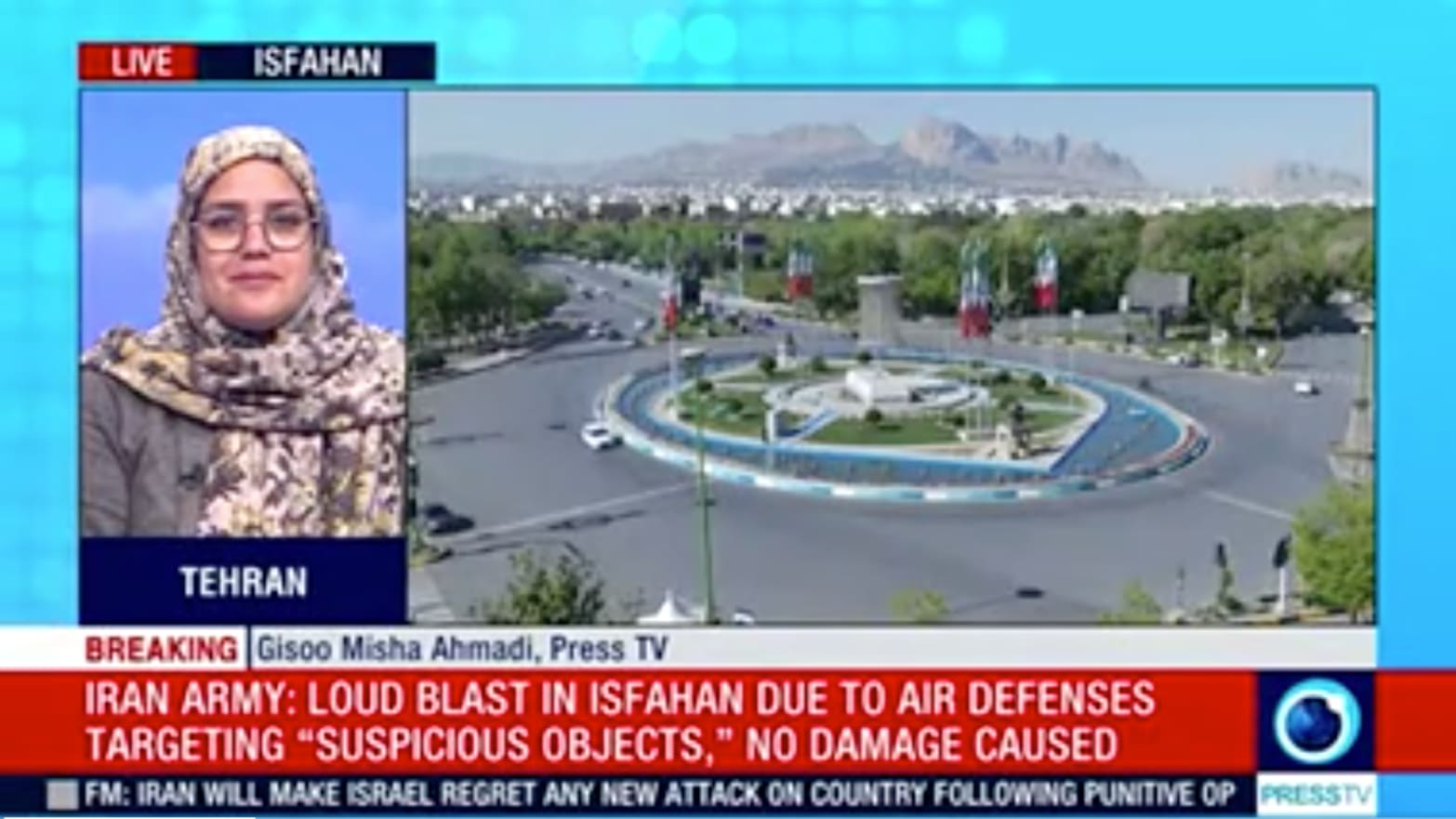Iran’s tightly controlled state media made fun of Israel’s reprisal attack on Friday, claiming that a few drones had been intercepted and no serious damage was done—with a top Israeli minister appearing to agree.
World capitals have been on edge since Iran launched an unprecedented direct attack on Israel last week, with President Joe Biden among those pleading with Prime Minister Benjamin Netanyahu not to respond with a direct attack on Iran.
Late on Thursday, U.S. rolling news channels switched into breathless global conflict mode as reports emerged that Israel had dismissed the urgent advice of the White House and launched a strike on Israeli soil.
The New York Times reported that Israeli and Iranian officials had confirmed Israel’s military response, writing that sources in Iran claimed a military air base near Isfahan, in central Iran, had been struck. CNN and others quoted American officials saying Israel had carried out a military strike inside Iran.
This was the nightmare scenario that global leaders feared could spark an all-out regional war.
Just hours earlier, a top Iranian Revolutionary Guards commander claimed that Iran would even reconsider its peaceful nuclear doctrine in the face of threats from Israel.
And Iran’s foreign minister appeared on CNN himself to issue a blood-curdling threat over a potential Israeli retaliation. “In case the Israeli regime embarks on adventurism again and takes action against the interests of Iran, the next response from us will be immediate and at a maximum level,” Hossein Amir-Abdollahian said.
What happened next was very different.
As reports of the Israeli attacks grabbed world headlines, an extraordinary segment unfolded on Iran’s pro-regime Press TV, where correspondent Gisoo Misha Ahmadi totally dismissed Israel’s retaliation.
“I would suggest our viewers—if they want to have a good laugh—they can check social media reports from citizens who are there, who are actually making fun of all the commotion that was made by Israeli media about a possible attack,” she said.
Ahmadi conceded that Iran is on a high state of alert and took down a series of drones that were approaching Iranian airspace but she claimed that was the extent of the threat.
“Everything is completely normal,” she said. “And people are enjoying the weekend.”
Press TV also posted a clip on X purporting to show a traffic circle in Isfahan where life continued as normal: “The city is calm and peaceful. The video shows a tranquil atmosphere in the Iranian city of Isfahan, with residents going about their usual routines, despite the recent explosions heard near the city.”
Some of Iran’s media, including the Islamic Republic News Agency (IRNA), did report on explosions being heard near Isfahan, which is close to the home of Iran’s nuclear program, but an Iranian official told Reuters that was the sound of three drones being shot down over Isfahan by air defense systems.
The semi-official Tasnim News Agency originally reported that the Israeli attack was simply “rumors.”
“There are no reports of an attack from abroad against #Isfahan or any other part of #Iran, informed sources told Tasnim on Friday,” the agency posted on X. Later, they updated their story to agree with the line that any explosions heard were the result of anti-aircraft weapons taking down “suspicious objects.”
It is as yet unclear whether Israel’s attack penetrated the air defenses, but the response from Iran’s regime-friendly media suggests that Tehran is keen to downplay the attack. Reuters quoted a senior Iranian official saying there was no immediate plan for retaliation against Israel. “The foreign source of the incident has not been confirmed. We have not received any external attack, and the discussion leans more towards infiltration than attack,” the official said.
Israel’s far-right national security minister, Itamar Ben-Gvir, seemed to agree that this was not a major attack, writing “Dardaleh!” on X, which is slang for weak or feeble.

